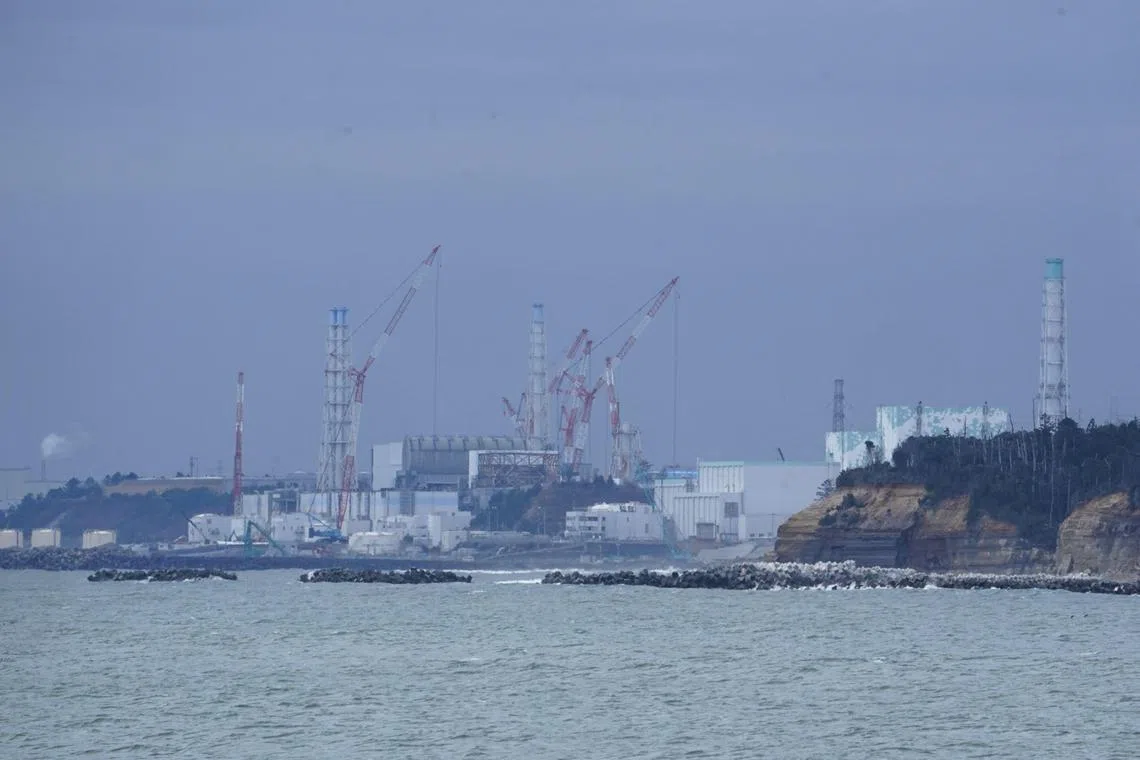Fukushima operator starts dismantling water tanks
Sign up now: Get insights on Asia's fast-moving developments

Scrapping the welded tanks is a crucial step in Tokyo Electric Power Company’s decades-long effort to decommission the Fukushima nuclear power plant.
PHOTO: BLOOMBERG
TOKYO - The operator of Japan’s Fukushima nuclear power plant said it started dismantling hundreds of water tanks
Scrapping these welded tanks is a crucial step in Tokyo Electric Power Company’s (Tepco) decades-long effort to decommission the stricken facility, which went into meltdown after it was hit by a catastrophic tsunami in 2011.
“The tank dismantling work... started at 8.05am today,” Tepco spokesman Tatsuya Matoba told AFP.
Since the accident, Tepco has stored around 1.3 million tonnes of water – a combination of groundwater, seawater and rainwater – at the plant, along with water used for cooling the reactors.
The water was filtered to remove various radioactive materials, but has remained inside the more than 1,000 tanks that occupy much of the plant’s grounds.
After removing the tanks, the utility plans to build facilities to store highly dangerous molten fuel debris to be extracted from inside the reactors.
Scrapping the water tanks became possible after Tepco began releasing the stored water into the Pacific Ocean in August 2023.
Japan has insisted that the treated water does not harm the environment, a position backed by UN atomic watchdog the International Atomic Energy Agency (IAEA).
But the move was met with angry reactions from China, which initially banned imports of Japanese seafood before saying in 2024 that it would “gradually resume” the trade. AFP


